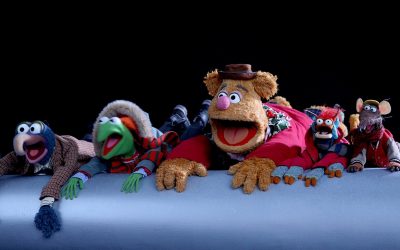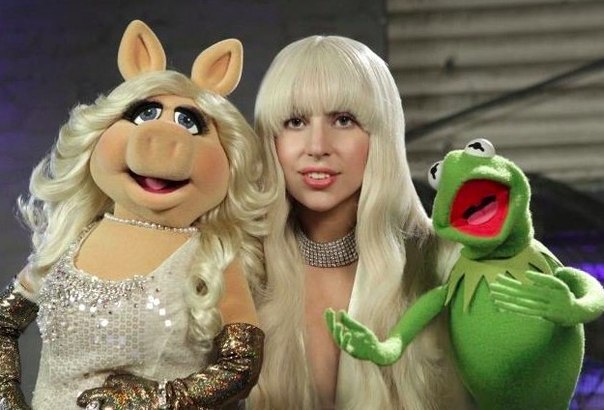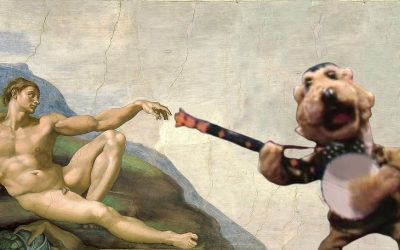Dear Diary,
ToughPigs is making me write another episode review. I thought I’d turn in some short, simple fluff piece that wouldn’t take much time, but after watching “The Preachification of Convincing John”, my mind is exploding with thoughts about how this episode explores the philosophical complexities of living ethically in the modern world. I don’t think they want that article, but I’m going to write it here to get it out of my system, and then I’ll write the version of this article that they want. I’ll just have to remember to send them that Google Doc instead of this one.
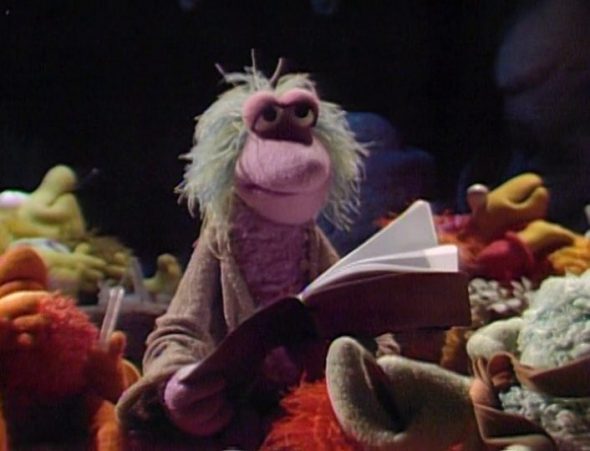
Original air date: February 14, 1983
Six episodes in, we’re still very much in Fraggle Rock’s “Cruel Era” – when the characters are inexplicably mean to each other. It’s painful to see my beloved Doc be such a jerk to Sprocket, refusing to feed him even though he has real needs, given that he’s a real dog and all. The cause of this apathy is Doc’s total self-absorption after finding one of his old ideas in his diary and becoming fixated on it. (I sure can relate, right Diary?) This seems disconnected from the main story apart from Mokey also having a diary, and the postcard segment may appear similarly irrelevant apart from its focus on Doozer constructions, but I’d argue that it’s all connected rather intelligently. While the Doc segments show that self-absorption can prevent one from caring about others, the more insightful storyline, Mokey’s story, shows how self-absorption can make people do the wrong thing out of compassion.
Our story begins with Mokey observing the Doozers at work and singing the most boring Fraggle song. She reflects on how hard the Doozers work to build beautiful buildings only for the Fraggles to immediately eat them. Without consulting any Doozers, she decides that the compassionate thing to do is stop eating Doozer constructions. She gets her friends to swear them off, and when that isn’t enough, she has to go with the nuclear option: Convincing John.
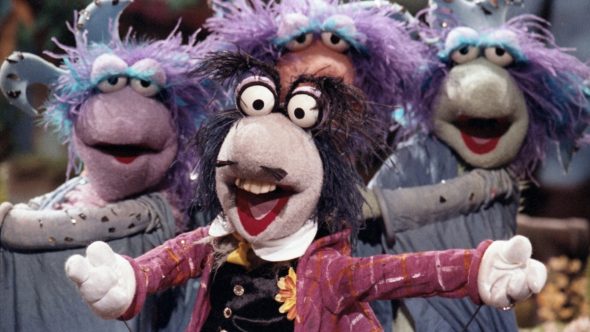
Convincing John is Jim Henson’s first Fraggle Rock character, and one of only two. His exact job is unclear, but the language of the song he sings and the title of the episode tell us that he’s a kind of preacher. Jim translated his old, trusty salesman persona from pitch reels and meeting films into an explicit pastiche of manipulative televangelists, and at a time when televangelists were becoming hugely popular in the States. This was, to say the least, a bold move, and I don’t think a kid show could get away with that today – not without becoming the subject of heated, unpleasant online discourse, but maybe that’s inevitable for children’s shows today anyway.
While not a malevolent character, Convincing John does create a problem when he convinces all the Fraggles in the world to stop eating Doozer constructions by singing the most enthralling Fraggle song. With no one eating the towers, the Doozers fill up Fraggle Rock until there’s no more room for them to build. It turns out that consuming Doozer towers was how Fraggles created jobs for Doozers, which is basic Fraggle economics. (Diary, take note of the idea to write an article explaining Fraggle economics. It’ll probably turn out to be a very simple thing.)
Despite Mokey’s best intentions, the distraught Doozers conclude that “the Fraggles have become heartless”, and they pack up to move away. Mokey releases the Fraggles from their oath so the Doozers can build again, and she concludes, “it’s not easy to understand other people’s problems, but it’s very easy to think you do.”
Indeed, it’s very easy to misunderstand everything about other peoples and cultures, so the intuitive thing is to map one’s own experience onto them, even though this does not work. In this context, the postcard segment (in which Uncle Matt confuses human construction workers for Doozers and tries to eat one of their constructions) becomes a microcosm for the postcard segment as a narrative device throughout the series. Uncle Matt is a spoof of the archetype of the British academic adventurer – the type of colonialist explorer who would, say, steal things from other cultures to put in the British museum. Fortunately, this show doesn’t have Fraggles stealing other people’s artifacts for a museum, for a whole season, without even suggesting it’s a wrong thing to do, as that would be so obviously unacceptable that Muppet fans would surely call out the creators of such a show for screwing up, but that’s beside the point. The point is, the recurrence of the postcard segments is evidence that the main idea Fraggle Rock wants to drive home is the importance of listening to people if you want to understand them.
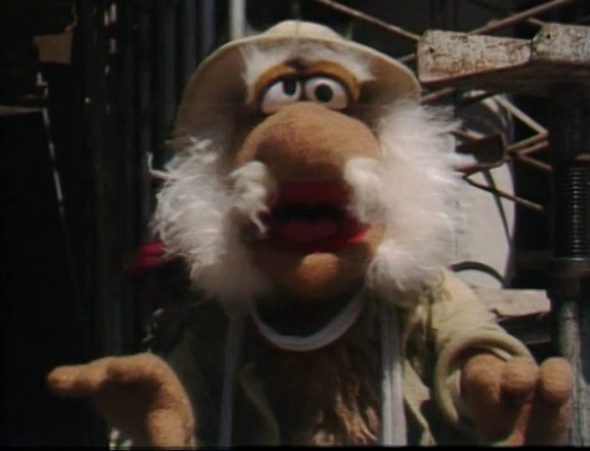
Because I’d like to use the word microcosm again, I’ll go even further and say that this episode, directed by Jim Henson himself, is a microcosm of Jim Henson’s legacy. He’s someone who wanted so badly to do good, yet some of his work has not aged well. The difference between a Harry Belafonte episode of The Muppet Show and a Spike Milligan episode of The Muppet Show is, to a large degree, having enough information about the cultures being depicted to know what’s okay and what’s harmful. Maybe it should have been obvious, but “obvious” is overrated – we’re all as clueless as Mokey, Matt, or Doc until we know enough to not be. I’m not sure how much anybody at the time was actually bothered by the Milligan episode of The Muppet Show, aside from Germany banning it, but it wouldn’t be made the same way today, and I’m glad of that. Some Muppet fans are not so happy about that.
Sometimes I talk with my Muppet fan friends about how strange it is when other Muppet fans don’t share some semblance of our values. We wonder, “Didn’t they grow up with the same Jim Henson? The ‘love and forgive everybody’ guy? The Fraggle Rock guy?” Indeed, they do love Jim Henson, and Jim Henson was a man whose moral values were configured for the context of “white American in the ‘70s and ‘80s”. There are a lot of people who want positive moral values to be expressed today precisely the same way they were in that context, with all the same flaws and exceptions. Eventually, they’ll have to wake up and listen to Doozers.
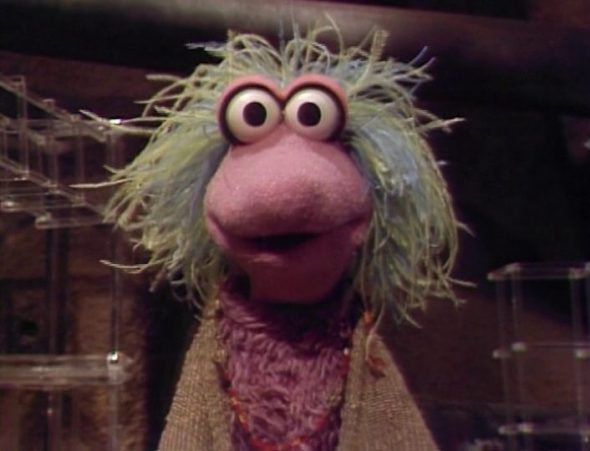
Perhaps this episode really is a microcosm of ethics in general, particularly as it relates to compassion, and information. As I’ve been planning this article, the image that keeps coming to mind is that of the airplane oxygen mask. You know how parents are always told to put the mask on themselves first before they put the mask on their kids? The reason why that always has to be stressed is that most parents, out of compassion, will feel inclined to save their kids first. It’s a good impulse, but the compassionate impulse has to be shaped by practical, correct information. I believe that people are basically good, and all of us have our compassion configured a little differently based on what information we do or don’t have. This makes it all too easy for the Convincing Johns of the world to pair some misinformation with some compelling fears and, just like that, bungle up our compassion so much that we’re no good to anybody.
You know what, Diary? This whole time I’ve been writing very general philosophizing about humanity, but, if I’m being honest with myself, this is all very personal to me. As I think about how Mokey learned to listen to the community that was affected by her actions, I reflect on my anxieties as a neurodivergent person about how hard it is for the neurodivergent community to be heard. Listening to communities sounds simple, but there’s no way to interact with a community as a whole, and nobody has the God’s eye view required to see if the individuals I know actually represent their communities. I wonder, when Sesame Workshop collaborated with Autism Speaks, were they being a Mokey or a Doc? Did they mean well at all? Is there any way to make the voices of a community louder than the top search results on Google?
Alas, dear Diary, I don’t have any great answers. All I know is, as a Muppet fan, it’s tempting to be like Doc, fixating on my fun interests and tuning out the voices of those in need, but I don’t want to. Us silly creatures have to figure out how to manage a heck of a lot of injustices in the coming years that are more serious than silly. We are going to have many missteps, and we will absolutely make Mokey’s mistake again and again, but I hope we’ll try our best to learn to be listeners. Otherwise, we’ll be human beings through and through.
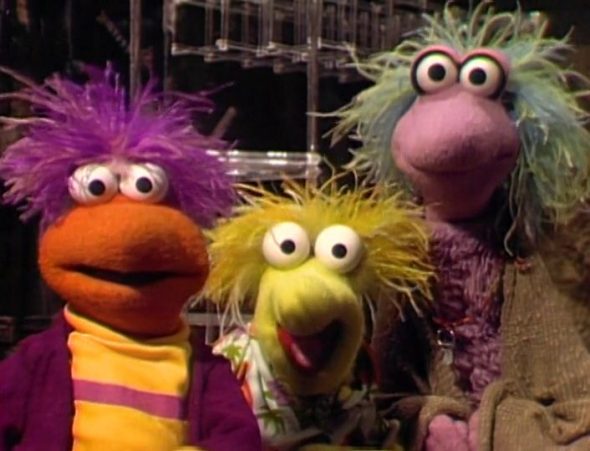
Strongest Moment: I always crack up at the way Convincing John yells “Yum yum!”
Weakest Moment: Doc ends this episode on such an upsetting note. Feed your dog!
MVF (Most Valuable Fraggle): Convincing John! (He made me say that.)
First Appearance Of…: Again, Convincing John!
Musical Highlight: Sorry for being a broken record, but it’s that moment when Convincing John pops up at his podium. Perfection.
Darkest Moment: A mother Doozer tells her daughter that they have to leave Fraggle Rock or they will die.
Fraggle Lore: The Fraggles have heard of human beings, plastic cups, and “caterpillas”.
Obscure Character Watch: Jerry Nelson plays an elder Fraggle in this who I suspect was positioned by the writers to have the role that would ultimately become World’s Oldest’s.
One More Thing…: Throughout this entire episode, Mokey is the only Fraggle who cares even a little bit about how the Doozers feel. She may not be a perfect ally, but she’s the only character in the entire episode who’s willing to change how she behaves for the betterment of someone else. I respect that.
Okay, One More Thing…: Poor Convincing John. He’s so tired. We all relate.
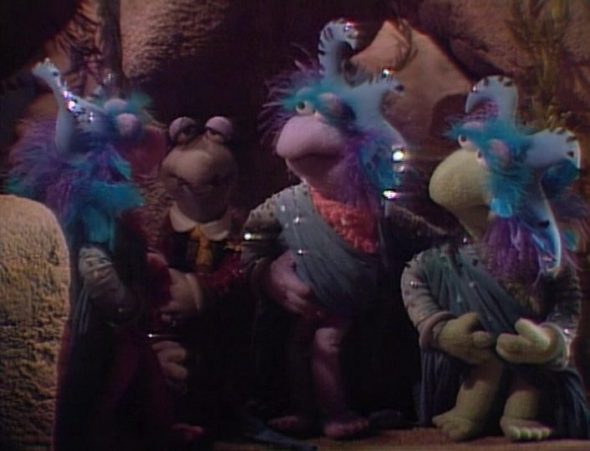
Click here to wear plastic cups on the ToughPigs forum!
by J.D. Hansel

